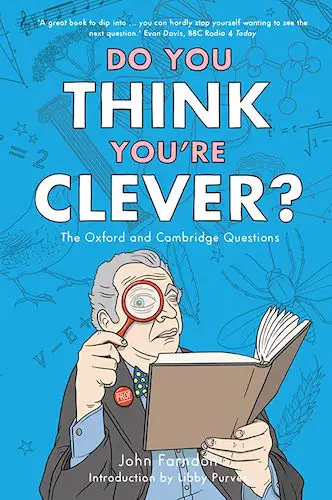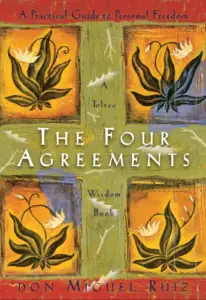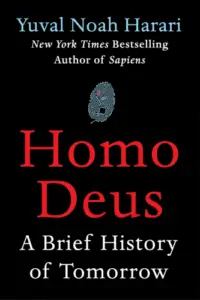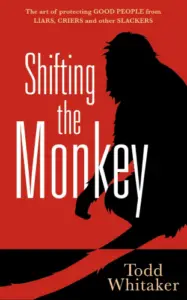Do You Think You’re Clever
Book Author: John Farndon
Summary reviewed by:
Terrence Timmons
Terrence Timmons
Analyst
Bachelor of Arts (BA), University Of California, Santa Barbara 2019
With over 4 years of experience as an analyst. Terrence Timmons is committed to analyzing summaries without compromising on quality.
Do You Think You’re Clever: Summary
Ever wondered what it takes to outsmart an Oxbridge interviewer? "Do You Think You’re Clever" by John Farndon throws you into the ring with the toughest questions asked at Oxford and Cambridge interviews, providing a masterclass in thinking outside the box. Farndon, a prolific author with a wealth of knowledge across various subjects, crafts a compelling narrative around the art of questioning and intellectual debate. The book's core thesis revolves around the importance of critical thinking and creativity in problem-solving, using the daunting Oxbridge interview questions as a springboard for exploring broader intellectual territories.
Farndon draws upon a rich well of scientific theories, including cognitive psychology and educational theory, to underpin his exploration of intellectual challenges. His credentials as an author of numerous educational books lend him the credibility to dissect and analyze these complex questions. The book's approach is not merely academic; it is steeped in practicality, offering readers a realistic and achievable pathway to enhancing their problem-solving skills.
The strategies Farndon suggests for personal growth include lateral thinking, argument structuring, and the application of broad knowledge to specific problems. For instance, he tackles the infamous question, “Why can’t I see my reflection in a mirror with my eyes closed?” with a blend of scientific explanation and philosophical musing, illustrating the method of turning a question on its head to find its answer.
Farndon guides readers in applying these intellectual strategies in everyday situations, not just in interview rooms but in navigating life's myriad challenges. The book includes a variety of tools and exercises designed to sharpen the reader's mind, from thought experiments to scenario analysis, thus making the process of intellectual development both accessible and engaging.
Do You Think You’re Clever: Genres
Non-fiction
Educational
Philosophy
Science
Self-help
Intellectual Challenge
Do You Think You’re Clever: Themes
Intellectual Challenge: Farndon sets the stage for intellectual rigor with the Oxbridge interview questions that form the basis of each chapter. These questions, ranging across various disciplines, push readers to stretch their thinking and reasoning abilities.
Interdisciplinary Approach: The book emphasizes the interconnectedness of knowledge across various fields such as science, arts, and philosophy. For instance, a question on the physics of rainbows might lead to a discussion of color theory in art and symbolism in literature.
Self-Reflection and Growth: Farndon’s book fosters a sense of self-reflection. The questions posed allow readers to evaluate their understanding of the world and their place in it. This theme is echoed in questions such as, ‘What makes a good life?’ which requires deep personal introspection.
Importance of Curiosity: Farndon promotes the importance of intellectual curiosity. He encourages readers not to take things at face value and to always question the world around them. This theme permeates the book, urging readers to develop a continuous learning mindset.
Value of Critical Thinking: The book strongly emphasizes the importance of critical thinking. This is embodied in the complex, often abstract questions that Farndon poses, requiring the reader to analyze, evaluate, and form logical conclusions based on their own understanding.
Do You Think You’re Clever: Methodology
In creating this summary, we prioritized user-focused content by selecting a book that stirs intellectual curiosity, much like the theme explored in Farndon's work. Our expert analysis was pivotal, involving deep dives into the text to unearth the crux of critical thinking and problem-solving strategies. This aligns with our commitment to quality and integrity, ensuring each summary not only captures the essence of the book but also stands as a reliable and insightful guide for our readers, encouraging practical application of its wisdom in everyday life.


Do You Think You’re Clever
Date Published: 2009
Disclaimer: As an Amazon Associate I earn from qualifying purchases.




